Tanking
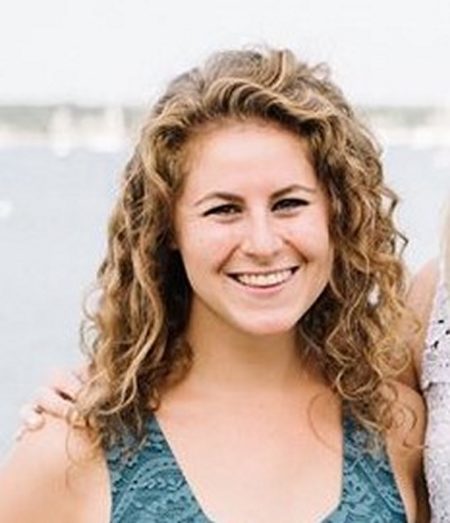
This is another post about a RPCV (Returned Peace Corps Volunteer), although her service was more recent than the three previous RPCVs I posted about. I met Beth in May of 2018 when she arrived in The Gambia, to follow up on Solar Suitcases that were installed in rural health clinics, for her masters program at Duke University. Her schedule included traveling upcountry, and I invited her to stay with me if she was traveling through Farafenni. It was a pleasure to host her for a night, and get to know this very accomplished young woman.
Below, in her own words, is background information, and the story she wrote to be included in the Peace Corps The Gambia official website. I am waiting for the partial government shutdown to be over, to add her story to the website, so by reading my blog you are the first to see it.
About Beth
I am originally from Ridgewood, New Jersey. I went to Bucknell University for my undergrad degree and got my degree in Psychology and Creative Writing. I was exposed to global health while at Bucknell when I studied abroad in Cape Town and went on various educational trips to Nicaragua and interned for a summer in Tanzania. These experiences eventually drew me to apply to Peace Corps. After I completed my service in 2015, I worked for a company that did education for teenagers in India, Nepal, New Orleans, Thailand and Cambodia and another company which organized accelerators for entrepreneurs in England, New York, Singapore and Malaysia. I am currently getting my Masters in Global Health at Duke and will finish in May 2019. I am hoping to work at the intersection of advocacy, women’s rights and maternal and reproductive health in humanitarian emergencies. I eventually want to go back to school to train as a clinician and work in women’s health at the clinical level.
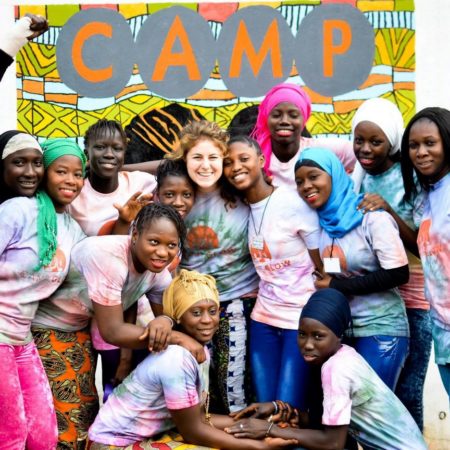
Peace Corps The Gambia Website Story
Leaving Nyakoi at the end of 2015 remains one of the hardest things I have ever done. I had a wonderful service, studded with immeasurable moments of kindness from my community and personal growth. I had fallen madly in love with The Gambia, head over heels, with both my host and Peace Corps communities. I arrived in October 2013 as a health volunteer right after finishing undergrad with only a vague idea of what Peace Corps would actually look like. I was optimistic and positive, but naïve and young, which, in retrospect, allowed me a chance to be a sponge and grow in unexpected ways. I largely attribute who I am today to my time in village.
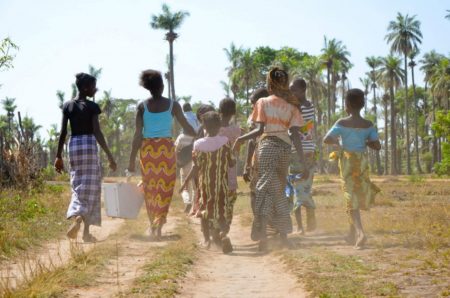
I never expected to have the opportunity to come back to The Gambia so soon after completing service. I wasn’t ready right away and I needed some time. I also had told my village I would be returning with a husband. After a tumultuous return to the U.S. in late 2015 and nearly two and a half years of working for multiple companies in multiple sectors and living out of a backpack, I settled in Durham, North Carolina to get my masters in global health. In exploring what mattered to me in global health and how I wanted to pursue the degree, research and work, it was immediately apparent that my time in village had largely shaped the way I had thought about and experienced the intersection of health and populations. For that, I was and continue to be grateful. When it came time to come up with a project for my program’s required field research and thesis, I found an opportunity to go back to The Gambia. I would be researching the impact of a specific type of solar light, a Solar Suitcase, on the quality of care health workers were able to deliver in rural health facilities. After having spent time in off grid communities, and having lived in a community without electricity, I had become really passionate about the idea of energy access for all, especially as it pertains to health. There was an organization that was specifically targeting healthy births and access to light in all deliveries. When I asked the company if I could be a part of their research, they gladly accepted, knowing that going to one of their sites that they had suitcases but had not yet evaluated would be easy for me because of my time there and experience. I was set to leave in May and would be spending 3 months traveling around the country, conducting interviews in both the Central River and Upper River regions.
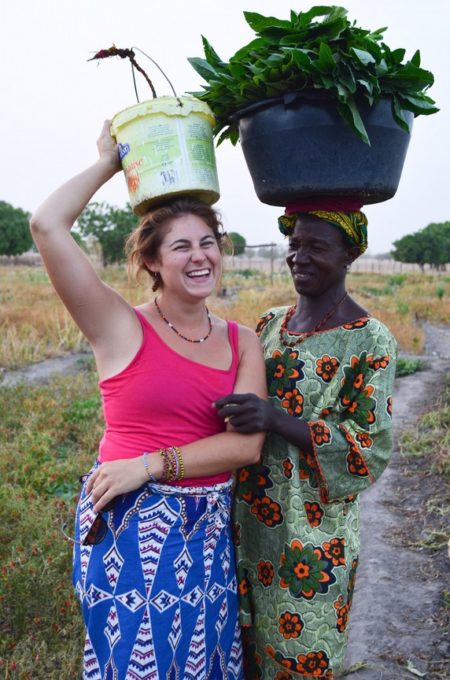
I was, in my typical fashion since finishing Peace Corps, largely underprepared to return to The Gambia. I booked my tickets only a few weeks in advanced, told people from Nyakoi I was returning in rusty Mandinka just before arriving, and had no idea where I was going to be staying for the summer. All of us who have spent time in The Gambia know what these aren’t problems and the incredible hospitality is one of the best parts about this corner of the world, but everyone in the U.S. was concerned and confused. I was used to this, of course, and knew that The Gambia was likely just as I had left it 3 years prior. I arrived in the middle of the night via Casablanca and Manchester and immediately upon arrival, I felt like I was back home. I took a taxi to Leybato’s, booked a room on the spot and decided to take a couple of days in Kombo to sleep and settle before going upcountry. The hot season was coming to an end, and Ramadan was just beginning. My Mandinka came back in full force within a few days, much to my surprise and as I greeted Kombo family members, folks from the Peace Corps office and former produce sellers and shopkeepers, I was amazed by how second nature greetings and nuances were, even 3 years later.
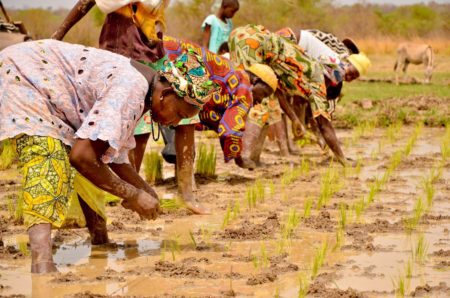
I was a bit anxious to return to Nyakoi, to be honest. Since I had left, I hadn’t been great about keeping in touch with the community. When I left, smartphones were not accessible, and once all of my contacts had broken the phones they had, I stopped trying to make the transatlantic connection. Additionally, my work often required 18-hour days in multiple time zones, making it really hard to even keep in touch with anyone at all. These were not excuses, of course, but they were factors in my thoughts of going back to village. There was also another volunteer in my village, who graciously welcomed me with open arms and was a highlight throughout my summer as we shared love and affection for a family and community. I was nervous to see who had passed away, who had moved away and to see the growth of children as indicators of time passing quickly.
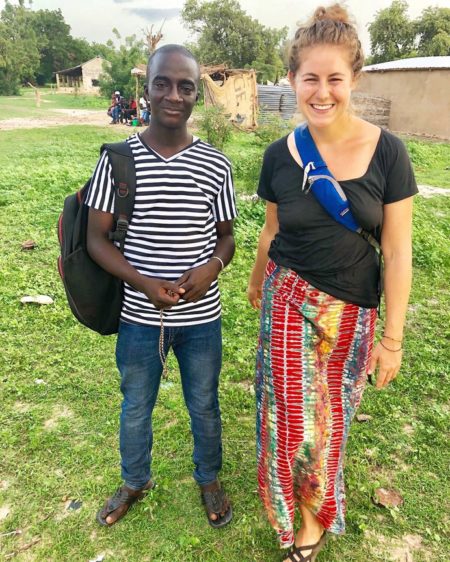
The trip to the URR was a little quicker than it used to be, the buses cleaner and more luxurious, but the bean sandwiches at the rest stop in Soma exactly the same. I cried in the bus, overwhelmed by how much I missed the beautiful scenes from the road. When I got to Basse, my host mother met the bus and together we traveled across the river and East a bit to get to Nyakoi right before the sun set. My entire family met me at the road. We embraced and I sobbed and I was, undoubtedly, home. As people heard my name, they came to greet me and village life came flooding back. We walked the dusty road to our compound and sat under the stars as we used to. We broke fast together as the sun went down and the habitual evening sweeping, eating from a food bowl and setting up mats for prayers comforted me as they used to. I spent two blissful weeks in village, meandering around to compounds I used to frequent. I marveled at the growth of children and new pregnancies and marriages. I napped in the URR heat on bantabas. I fasted with the community and broke fast with my host family, all of whom seemed to accept my return as if I had never left. They didn’t forget what I liked to eat, my preference for sleeping under the stars, for drinking attaya only in the mornings, for domoda and for morning runs.
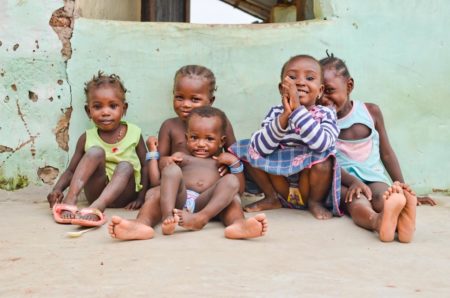
While village life and its slow monotony had largely remained the same, there were some things that had changed drastically. Electricity had come to Nyakoi, bringing many people inside or to compounds with televisions and cold beverages to people in the evenings, which was especially a luxury during Ramadan. I had missed 3 years of life of the children who I knew, and their growth was astounding to me. Their language skills and maturity was jarring and the children who were babies when I left and were older siblings were reminders of the swiftness of time.
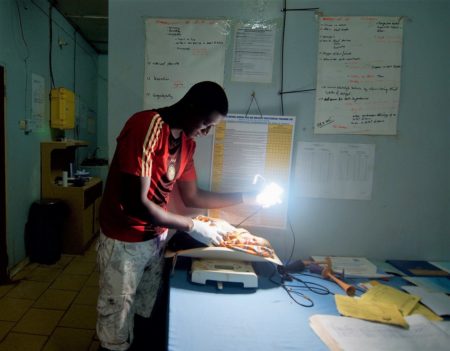
My work for the summer was equally astonishing in the sense that it was so natural. I traveled around with both the ministry of health and individually to conduct interviews with health workers and I spent a lot of time in clinics, greeting women who were pregnant and in the midst of laboring, which was common for me throughout my service as well. My work intersected with the relationships I had built 5 years prior one night, when I was sleeping at the nearest health center to Nyakoi. A woman came in after she delivered her baby in a car, trying to get ot the facility. The midwife on duty woke me up and told me the woman had come from Nyakoi. I walked into the exam room and Jarrai, the traditional birth attendant who was one of my closest friends in my service nearly screamed from delight and surprise. I had seen her when I initially got back to the country but she finally understood what my mission was for the summer. I pointed out the solar light, which was the only light in the facility. The mother was a friend of mine and the other woman who had accompanied her was a member of the health school my community and I had started. My worlds collided in the most remarkable way that evening and I recognized the importance of the relationships I had built in the very beginning of my service.
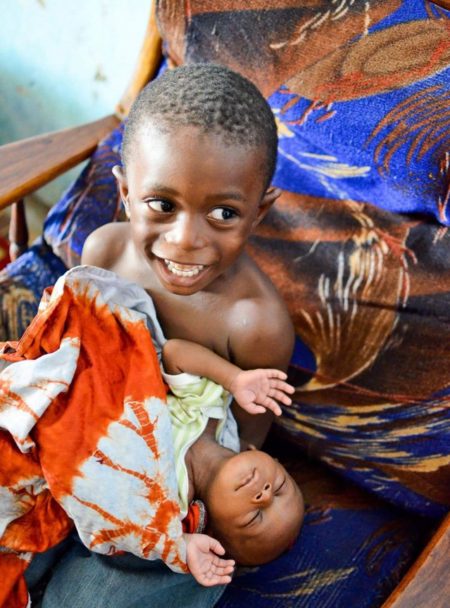
The night at the clinic happened near the end of the summer, after I had been traveling a bit. While I ended up being based in Kombo for easier access to the ministry, printing services and internet, I went back to Nyakoi a total of three times between Ramadan, Korite and saying goodbye. Everyone had started to go to their groundnut farms and village was quiet during the day, which made it easier to leave this time around.
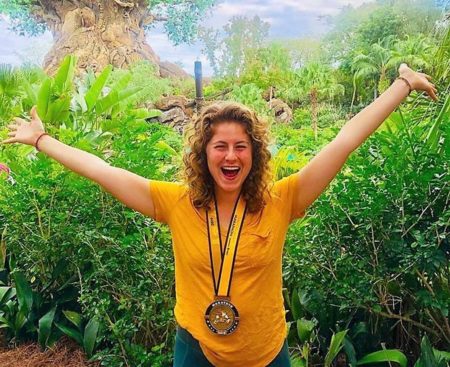
As returned volunteers from this part of the world, we have seized the rare opportunity to experience, live and embrace a culture so authentically. We know The Gambia as a place of discreet beauty, colossal warmth and culture so vivid that two years is not nearly enough to see and learn it all. After my service, I experienced intense homesickness for a place I only lived for a couple of years, but a place which seeped into my soul in the most wonderful and sometimes difficult ways. I wasn’t as heartbroken this time around and I think it’s because I realized that this will always be home. I will be remembered and loved and welcomed as often as I am able to return and my service still continues in the way I move forward in this world.
To learn more about Beth’s experiences in The Gambia visit her blog – www.bethinthepeacecorps.wordpress.com